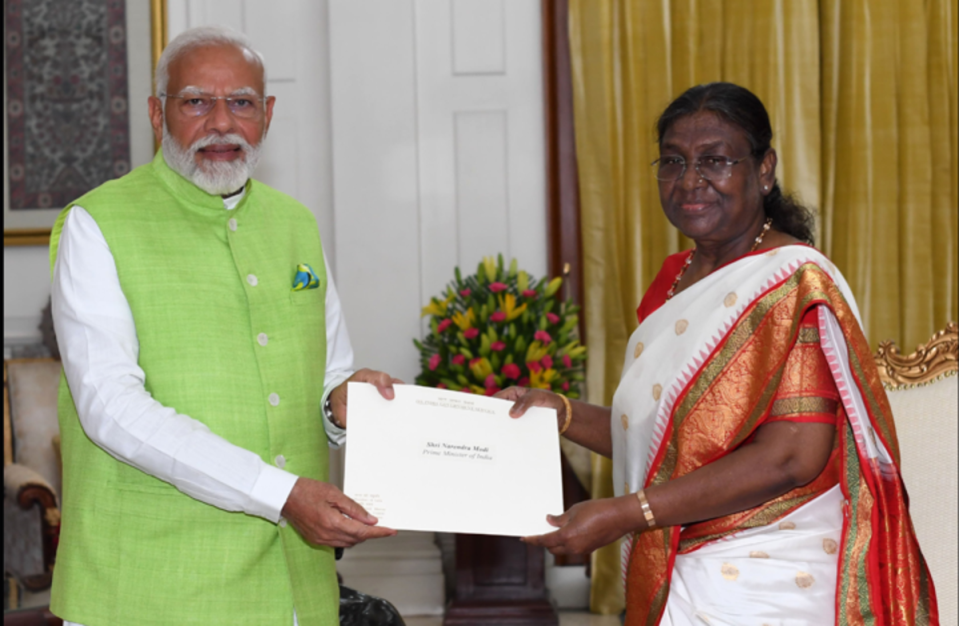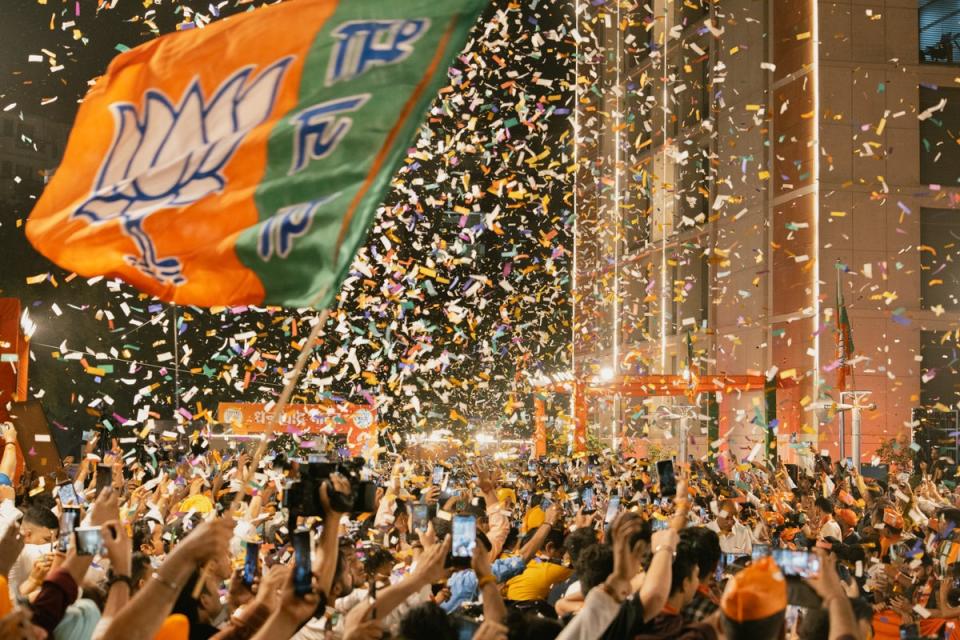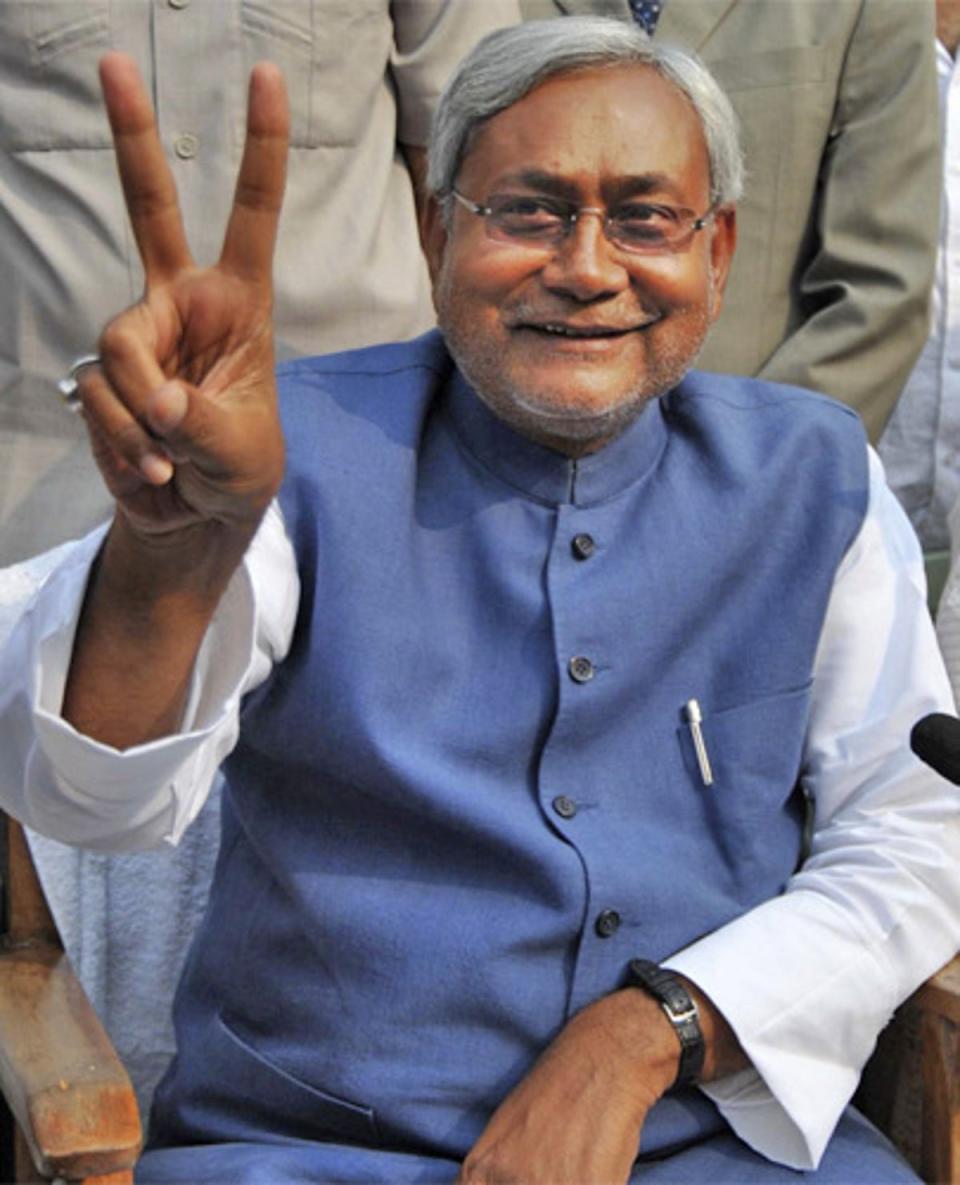Modi set to form coalition government after India election leaves him without majority
Narendra Modi will return as India’s prime minister for a rare third term and stake his claim to form a coalition government after his allies elected him as their leader on Wednesday.
Mr Modi offered his resignation to President Droupadi Murmu to pave the way for the formation of a new government after a disappointing outing by his Hindu nationalist Bharatiya Janata Party (BJP) in the general election.
The BJP failed to win an outright parliamentary majority. However, the BJP-led National Democratic Alliance [NDA] won 292 of the 543 seats, 20 more than the 272 needed for a majority.
For the first time since the BJP swept to power in 2014, the party did not secure a majority on its own, winning 240 seats, far fewer than the record 303 it won in the 2019 election.
This means that Mr Modi will for the first time need to form a coalition government to run the world’s largest democracy with the help of regional powers, which have not been averse to shifting their loyalties in the past.
Mr Modi declared victory on Tuesday in a speech to a crowd at his party’s headquarters in Delhi.
Mr Modi said a “new chapter of big decisions” awaits in his third term in office.

Mr Modi is set to be sworn in as prime minister on 8 June, according to reports.
Congratulatory messages have since poured in from neighbours in Asia and allies in Europe and the Middle East.
China, a rival in Asia, congratulated Mr Modi and called for a “sound and stable India-China relationship” amid a bitter border stand-off.
However, the US State Department said it would “wait for the finalisation of those election results”. The UK also did not issue a statement.
Two Modi allies, Nitish Kumar and Chandrababu Naidu, whose parties are the Janata Dal United (JDU) and Telugu Desam Party (TDP) respectively, are widely being described as “kingmakers”. The two parties control 28 seats collectively and are vital for the new government.

TDP, a significant regional player in the southern state of Andhra Pradesh, and JD(U) of Bihar in the east, have reiterated their support to the alliance. Mr Naidu, and Mr Kumar arrived in Delhi on Wednesday to hold a meeting with the NDA and the BJP.
However, Mr Modi’s relationship has been rocky with both parties.
Mr Kumar, 73, the chief minister of India’s poorest state of Bihar, has gained infamy by switching his political alliances several times during his political career. He returned to Mr Modi’s coalition earlier this year after previously having helped to form an opposition alliance of more than two dozen parties for the general election.
Mr Naidu refrained from directly commenting on the formation of the government but said: “We are in NDA, I’m going to the NDA meeting.”

“I am experienced and have seen several political changes in this country,” he added.
The opposition INDIA alliance led by Rahul Gandhi’s centrist Congress party won 230 seats, more than was forecast in the exit polls. Congress alone won 99, almost double the 52 it won in 2019, a surprise jump that is expected to boost Mr Gandhi’s standing.
The INDIA alliance did not concede till Wednesday evening. The bloc held a meeting in Delhi to discuss a future course of action.
The Congress party called the alliance’s strong showing in the polls a “win for democracy” and a “moral and political loss” for Mr Modi.
On Wednesday, India’s stock markets slightly recovered after suffering their worst losses in four years the day before. The recovery came after key allies reaffirmed their support for Mr Modi’s leadership.


